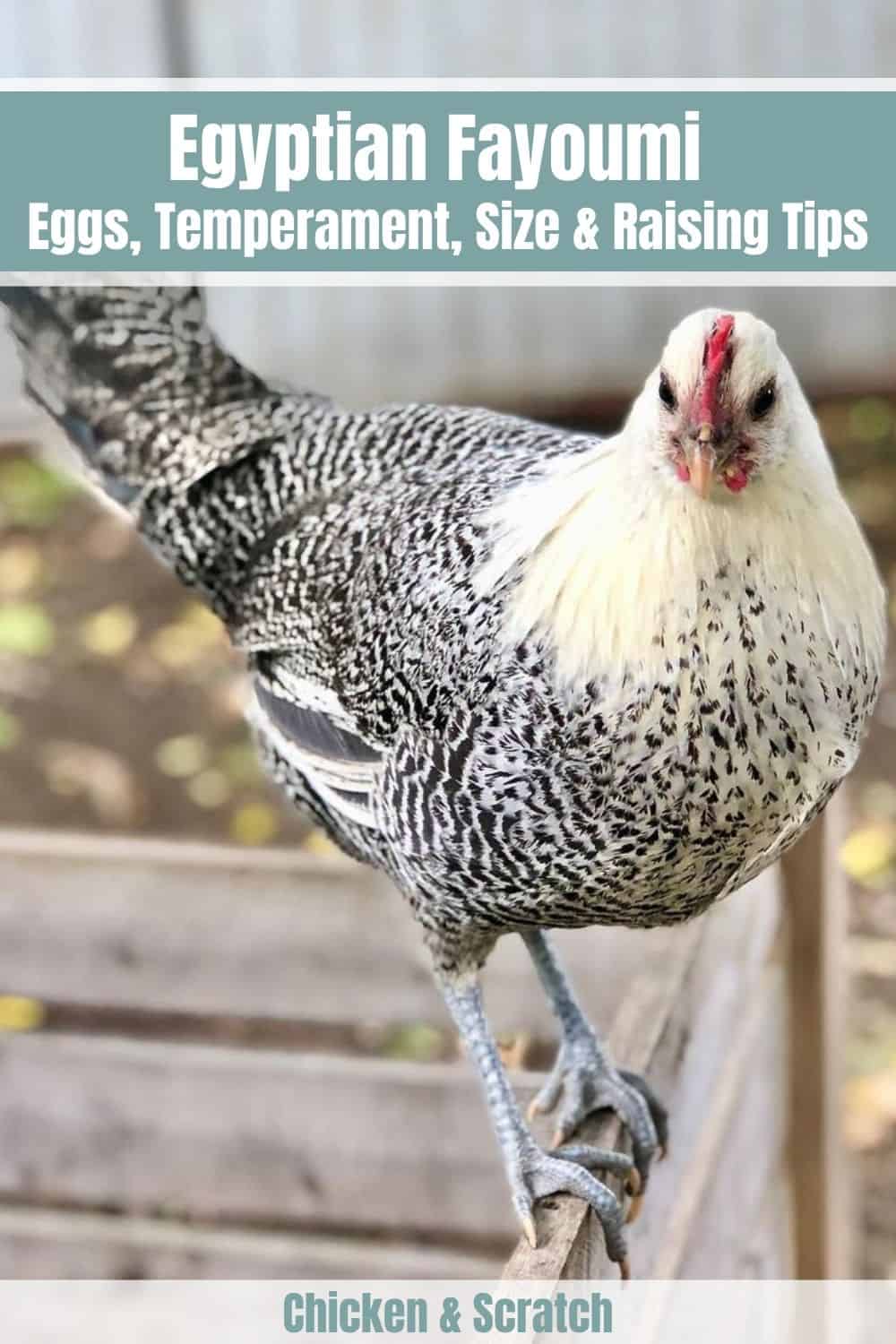If you are an experienced chicken farmer you have probably heard about the Egyptian Fayoumi Chicken, but if you are a newbie, chances are that you haven’t. This breed is becoming more and more popular in the USA, but before it was even brought to North America, it existed for centuries.
This breed is active, tenacious, and so fun to own! They are beautiful and restless, and they make great egg layers. If you are looking for a new chicken to join your flock, or if you are just now thinking about owning chickens, you may want to consider getting a few of the Egyptian Fayoumi ones. Let’s learn all about this wonderful chicken breed.
This article will cover
- Background And History of Egyptian Fayoumis
- Breed Standard And Appearance
- Egyptian Fayoumi Personality And Temperament
- Egg Laying And Meat Production
- Health Issues And Care
- 2 Tips For Raising Egyptian Fayoumi Chickens
Background And History of Egyptian Fayoumis
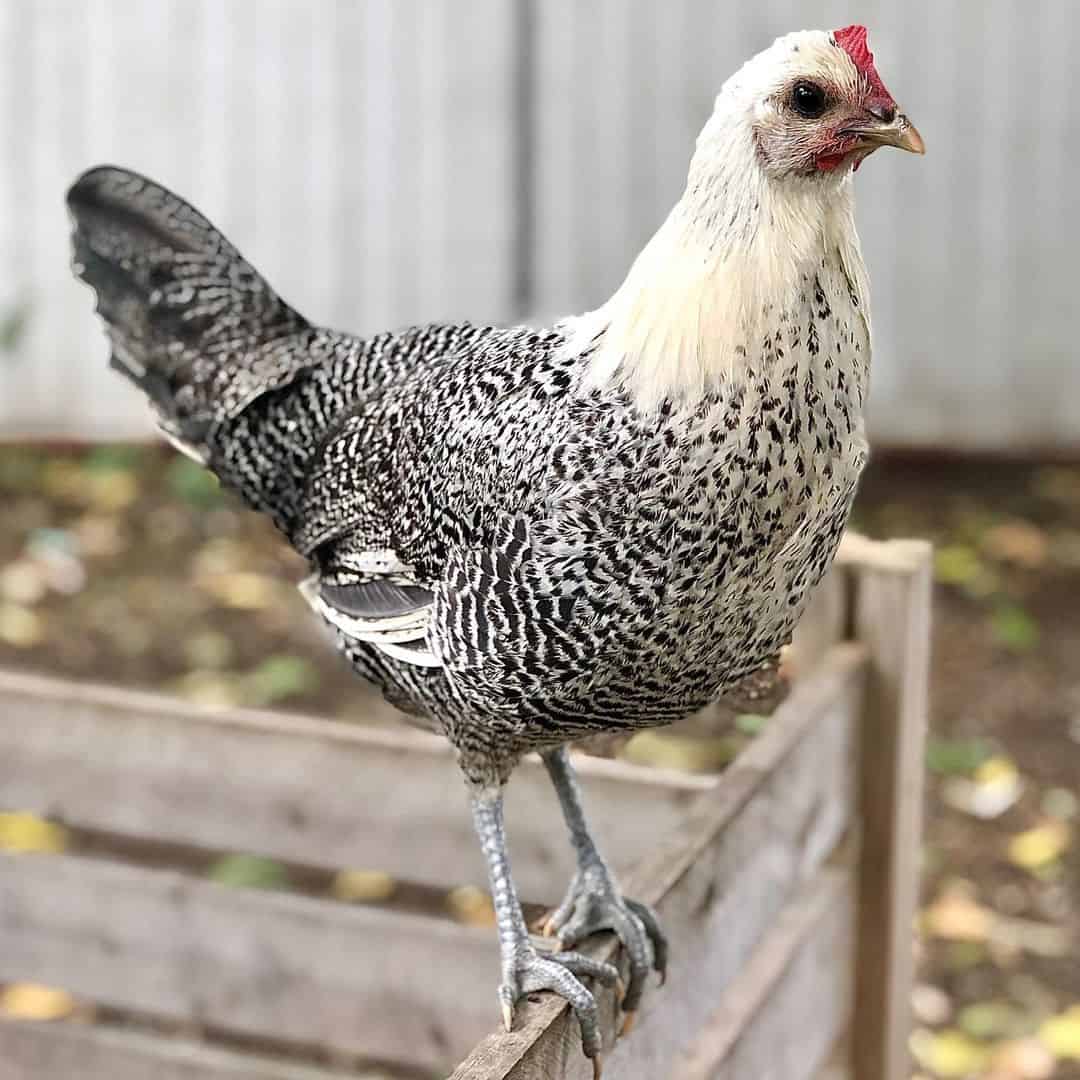
The Egyptian Fayoumi Chicken originated in Middle Egypt, in the Faiyum Oasis, around 100 km from the capital, Cairo. They were mostly raised next to the river Nile. They are most probably the descendants of Junglefowl chicken which has been in existence for thousands of years.
Egyptian Fayoumi is an ancient breed, believed to have existed for centuries, but it was brought to the United States just over eighty years ago. The person who introduced this amazing breed of chicken to North America was a dean from Iowa University, who imported the fertile eggs to study the genetics of these birds.
Since then, they have been slowly but surely gaining popularity in the USA. Nowadays they are mostly raised for eggs. Despite their wonderful appearance, the American Poultry Association is yet to recognize them for exhibitions and bird shows.
Breed Standard And Appearance
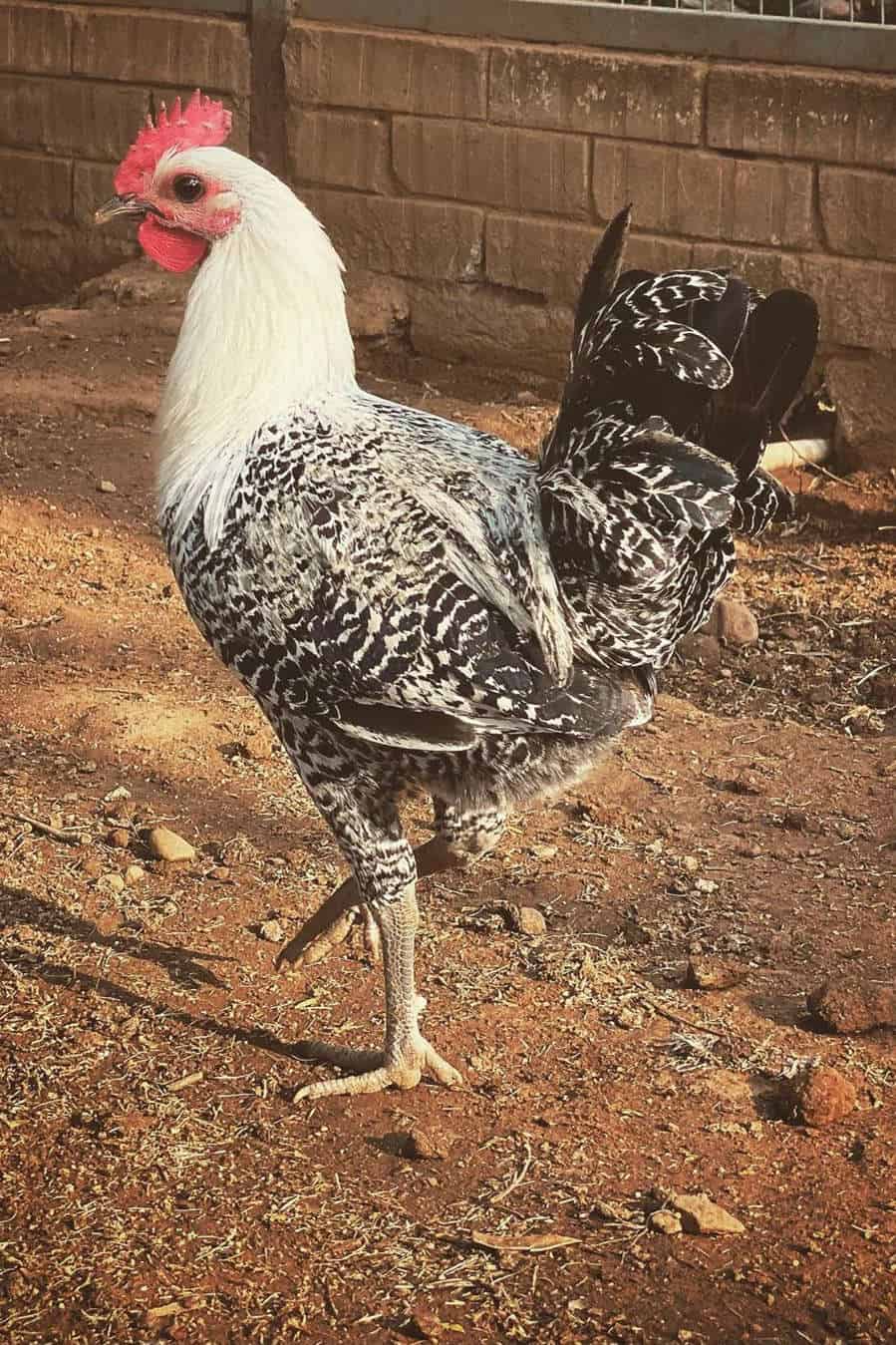
This chicken breed is typically small. The hens usually weigh around 1.5 kg while a rooster can grow up to be around 2 kg. Egyptian Fayoumi Chicken doesn’t have other variants. They look very elegant and they are quite beautiful birds.
Egyptian Fayoumi usually has white or silver feathers around its neck while the rest of the body is permeated with a darker color, usually black or grey, and sometimes brown. This unique color pattern gives it authenticity and truly makes it one-of-a-kind. Their tail is fluffy and large, and it is dark-colored.
Their wattles and combs are medium-sized and red. The wattle has six points. They have small, greyish beaks and sturdy legs of the same color. Their eyes are dark and their eyesight is amazing, which helps them see and escape the predators well.
These birds grow up so fast! You can expect an Egyptian Fayoumi hen to start laying eggs when she is just four months old. Don’t be surprised by how fast the roosters will start waking you up in the morning. They start crowing as soon as when they are five weeks old!
Egyptian Fayoumi Personality And Temperament
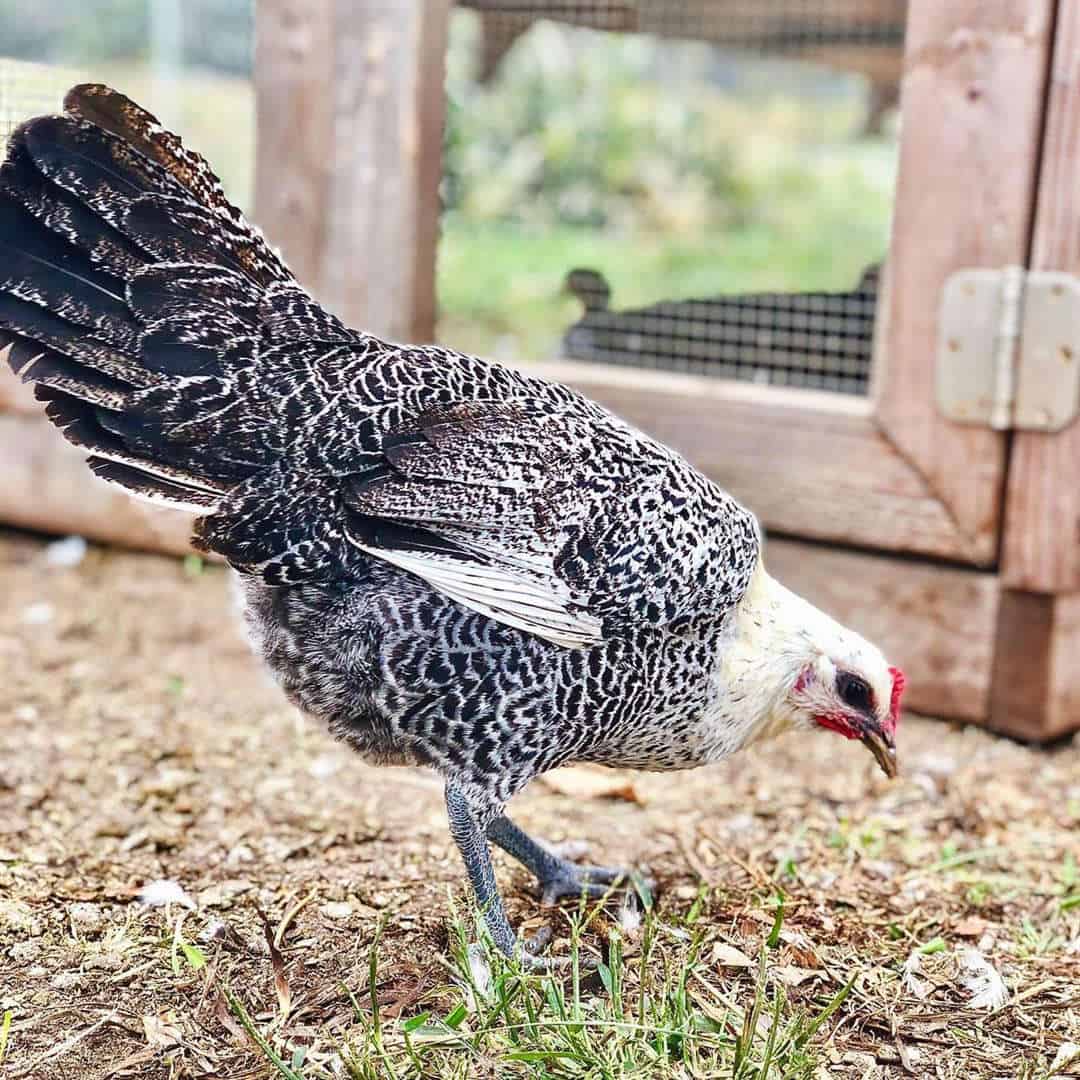
If you are looking for a cuddly pet, this chicken breed is probably not for you. The Egyptian Fayoumi can rarely be completely tamed. They do not like being picked up and it is very difficult to fully tame them even if you start socializing them as soon as they hatch.
They can tolerate people being around them, but you cannot expect this bird to sit in your lap or let you pet it. They are also very active and flighty. If you decide to add the Egyptian Fayoumi to your flock, make sure that you have a high fence.
They like freedom, so they need space to roam. This makes them great for free-ranging. They are probably one of the best free-range chickens one could ask for. If you have appropriate conditions, you can expect them to get most of their food by foraging, so it is not at all expensive to keep them in your flock.
They are very vocal too – if they notice a predator or if they are confined to a small space, they will do their best to let you know. These chickens do very well against predators – many farmers say that they are one of the strongest and most independent chicken breeds out there. They certainly know how to take care of themselves, so try to allow them as much freedom as possible.
Egg Laying And Meat Production
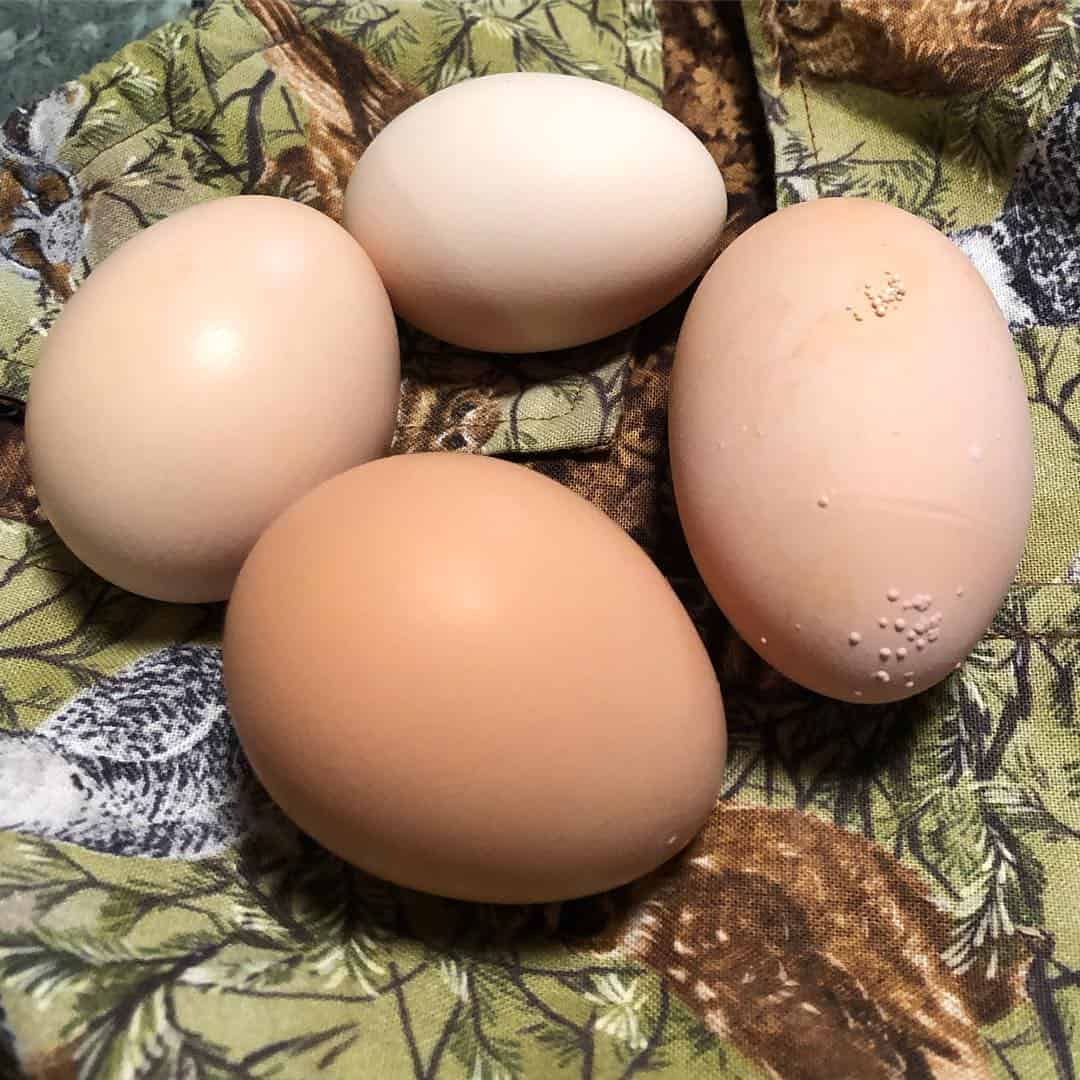
Not only do these birds start giving eggs very soon in their life, but they also lay a lot of high-quality eggs. The Egyptian Fayoumi Chicken can lay around 150 to 200 eggs per year. The shell color is cream white.
The eggs are on the smaller side, but they are delicious and contain lower cholesterol than average. The high-rate production and the quality of the eggs they lay make them great chickens to keep for egg production. On the other hand, they are not the best to keep for meat production. They are very small and you cannot expect a lot of meat from them.
Health Issues And Care
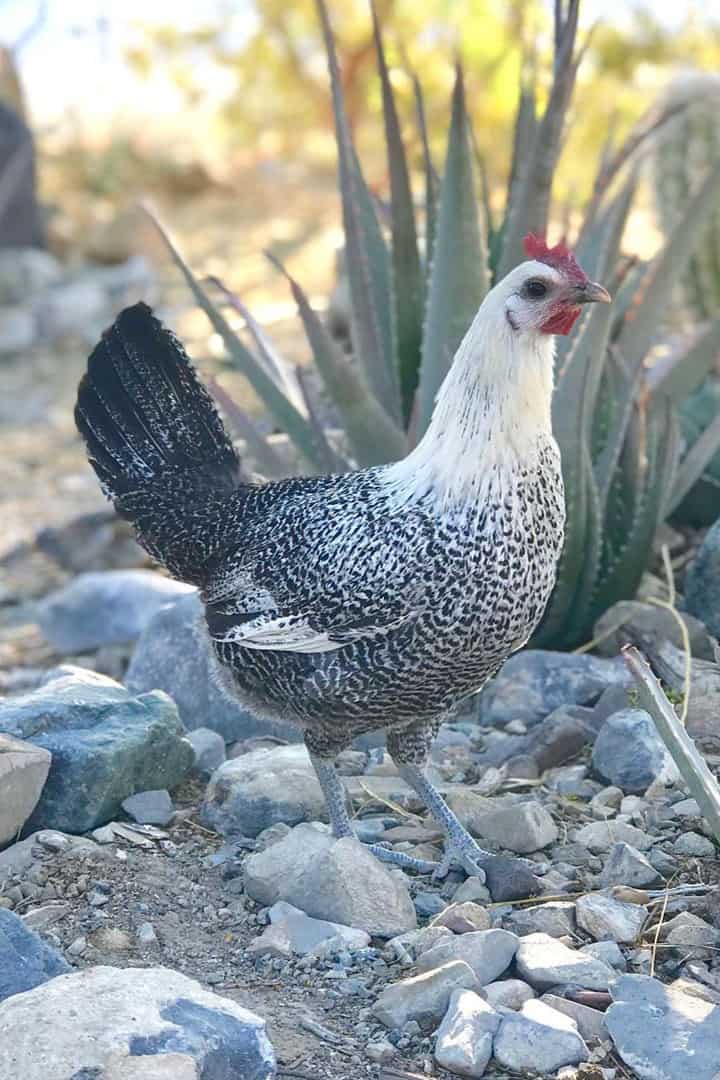
Here is one of the best parts about this breed – they very rarely get sick! Some studies have shown that they are probably resistant to many of the potentially deadly diseases that can affect chickens, like Newcastle disease, Marek disease, and possibly even Avian influenza.
Scientists are even researching the genes that make them resistant to these illnesses, and the potential findings can help many other disease-prone breeds become more resilient and healthy.
Their roots help them to do very well in hot weather so they are a great breed to have if you live in some of the tropical parts of the world. However, they do not do very well in cold weather. If you live somewhere cold, provide them with a heating lamp during the winter months and keep your eye on them for any potential signs of weakness.
Unlike many other breeds, roosters tolerate each other, so you can have two or three roosters in your flock. The younger ones will need some time to adjust but they will all eventually get along with each other.
Hens are not particularly broody, so you may want to have a broody hen in your flock if you want to keep making more Egyptian Fayoumi chickens. They can start getting broody when they are two or three years old but you cannot count on that.
2 Tips For Raising Egyptian Fayoumi Chickens
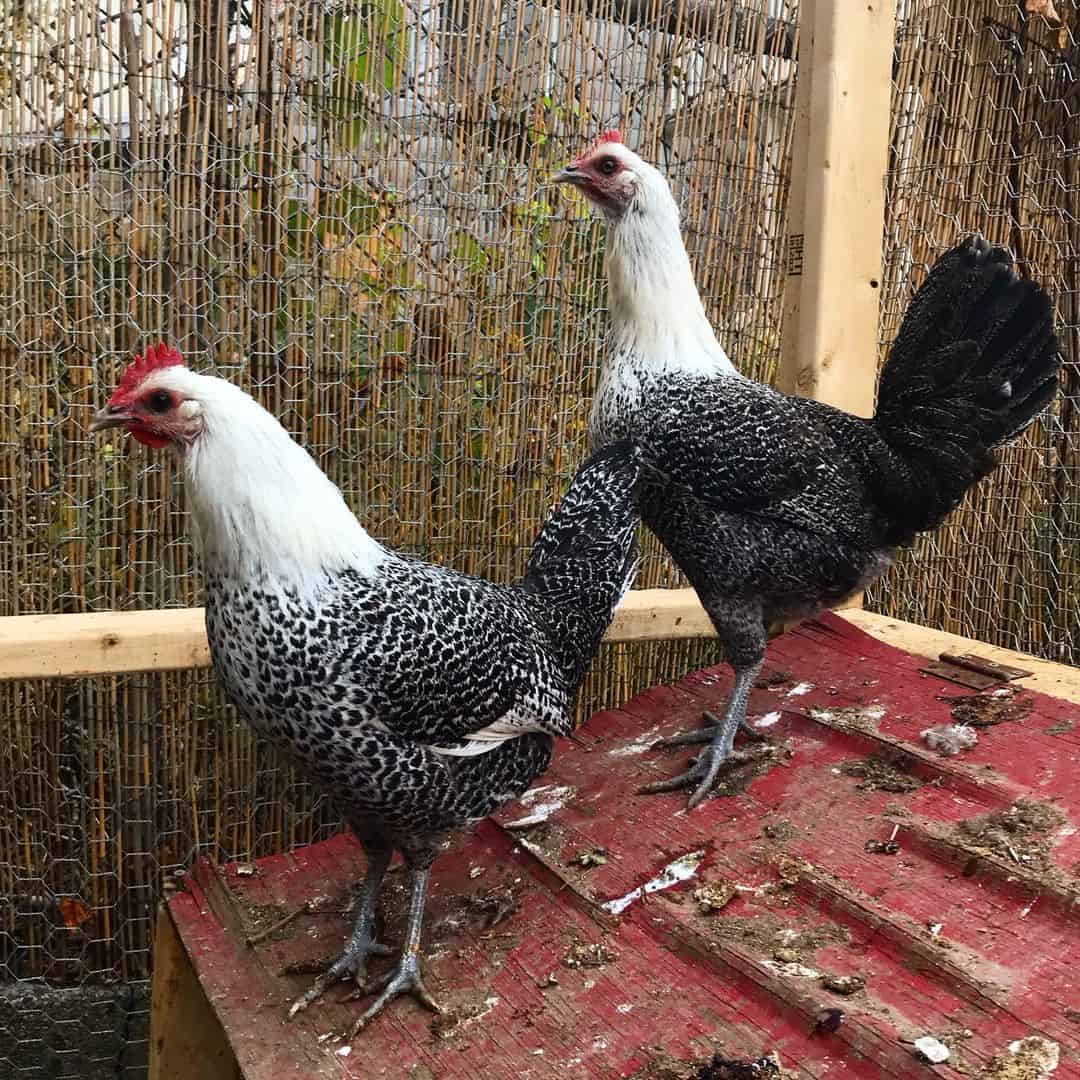
As mentioned, the Egyptian Fayoumi Chickens are quite independent and they do not take a lot of time or energy. Here are the top two tips that you need to know if you want to keep the chickens of this breed.
Give Them Enough Freedom
If you want the Egyptian Fayoumi chickens to be happy, you should give them as much freedom as possible. If you keep them confined, they will be very loud, and you can be absolutely sure they will try to escape.
They do not like small spaces and they do not like being inside of the coop at all times. As mentioned, they are great free-range birds, so let them out as much as possible and they will find food for themselves. They will not only be content, but you will also have lower maintenance costs as you will not have to buy as much food.
Although they are small, they do need a lot of space in their coop as well. Provide each of the chickens with at least 10 square feet of coop space so they feel comfortable when they are inside.
Check For The Eggs Outside of Coop
Many of the Egyptian Fayoumi owners reported that their fluffy friends lay eggs outside of their coop. The problem is, it can happen anywhere outside. Check the yard, around the coop, around the fence, and in between the bushes.
Also, don’t forget that they are quite flighty, so if there are any trees around, check there too. It can be quite annoying but with this breed, every day can turn into an Easter egg hunt!

Conclusion
Egyptian Fayoumi Chicken is certainly an interesting breed to have. You can expect a natural alarm as they are very loud, and active birds that will not tolerate confinement, and you should probably take some time to look for the eggs around your yard every day.
You will also get a beautiful, flighty bird that will come as a refreshment to your flock. They are not high-maintenance as they are amazing foragers, and they are quite independent, so you will not have to worry about spending a lot of time raising them. One more great thing about this breed is that they rarely get sick, so you shouldn’t worry too much about common bird diseases.
You should still vaccinate them regularly and check for any signs or symptoms of a disease, but generally, the chances of them getting sick are significantly lower than with most of the other breeds. They are not very broody and, depending on where you live, it can be difficult to find them, but when you do, it is worth it!
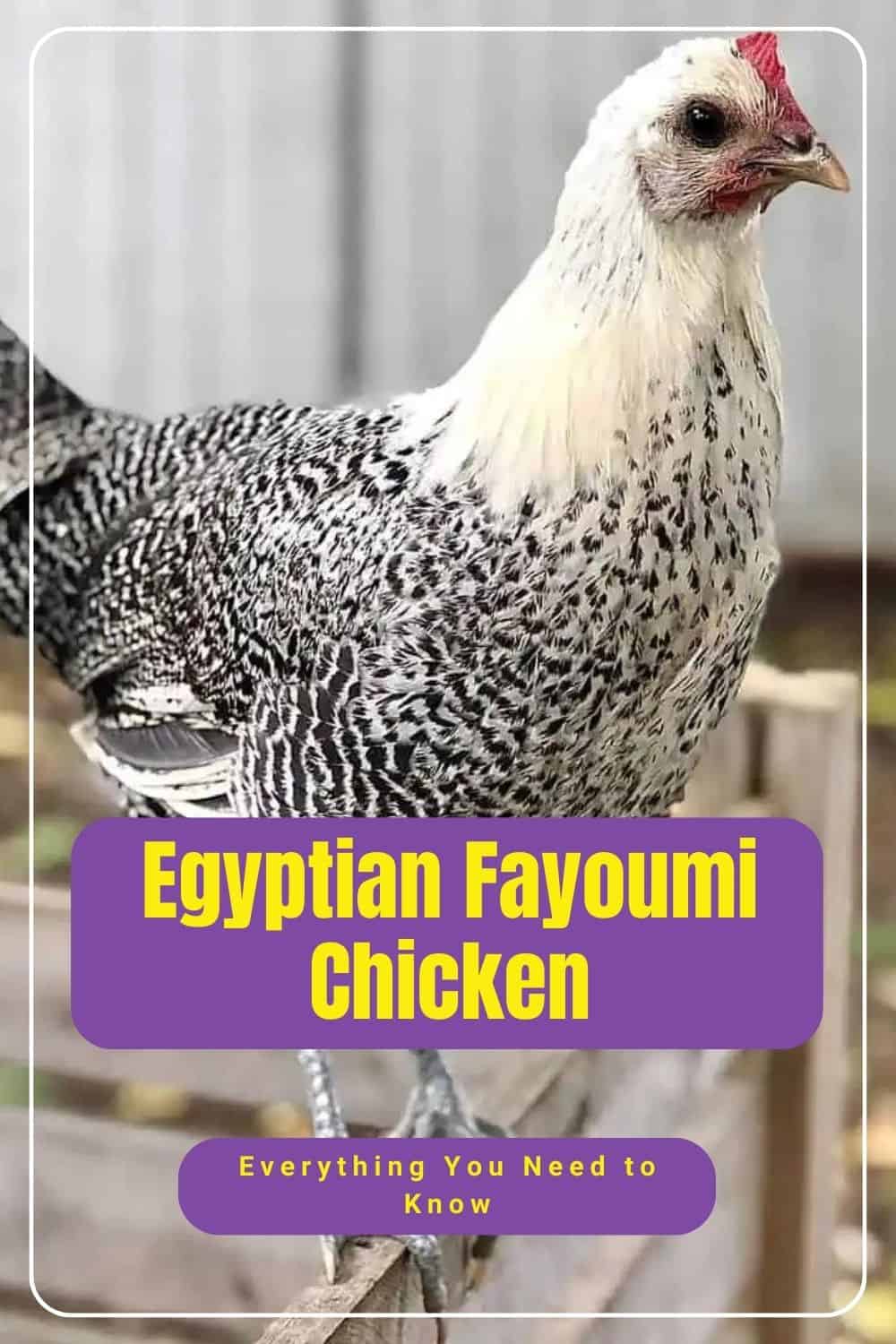

Joseph Hudson has been raising chickens for over 15 years. In 2018, he completed the Agriculture & Natural Resources program at Mt. San Antonio College. He currently raises over 1400 chickens on his 7.5-hectare farm. He keeps sharing his experience on raising healthy and happy chickens on Chicken Scratch The Foundry.
